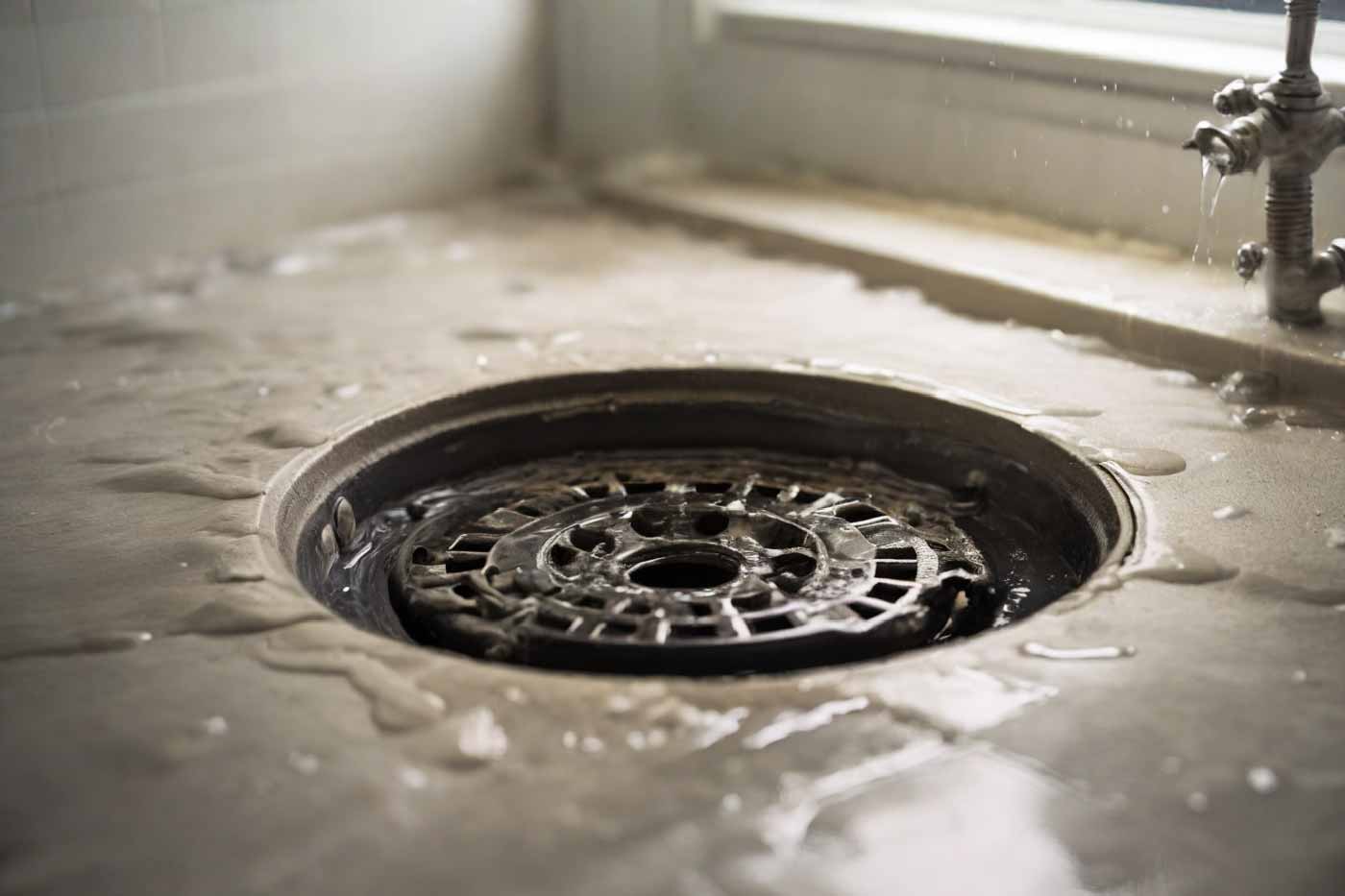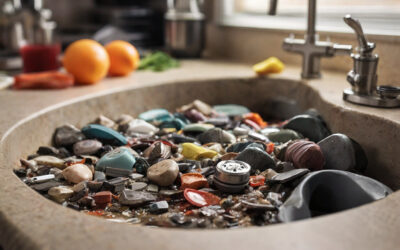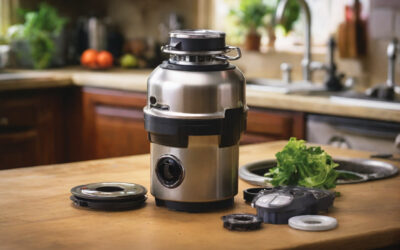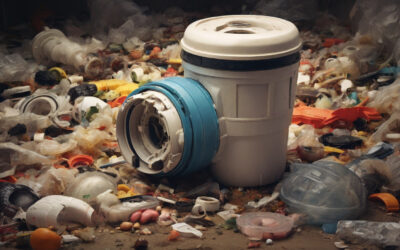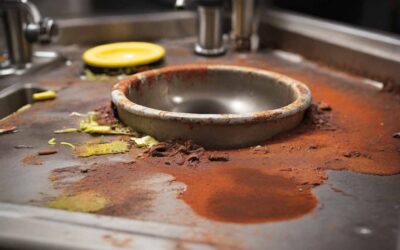When facing a shower drain with a gutsy clog. One simple thing that comes to mind is: Can you plunge a shower drain? The short answer is yes, but there’s more to it. This guide will explore what a shower drain is. As well as the common causes of clogs. Effective prevention methods, and how to properly use a plunger to tackle a clog. We’ll also discuss alternative methods for clearing a clog and when it’s time to call a professional plumber.
What is a Shower Drain?
A shower drain is an essential component of your plumbing system which helps to remove wastewater. It typically consists of a drain body. Which has a connection to the plumbing system beneath your shower, and a drain cover. It helps prevent large objects from entering the drain pipe while allowing water to flow through. The drain body usually connects to a P-trap. Which is a curved section of pipe that traps water to prevent sewer gases from entering your home.
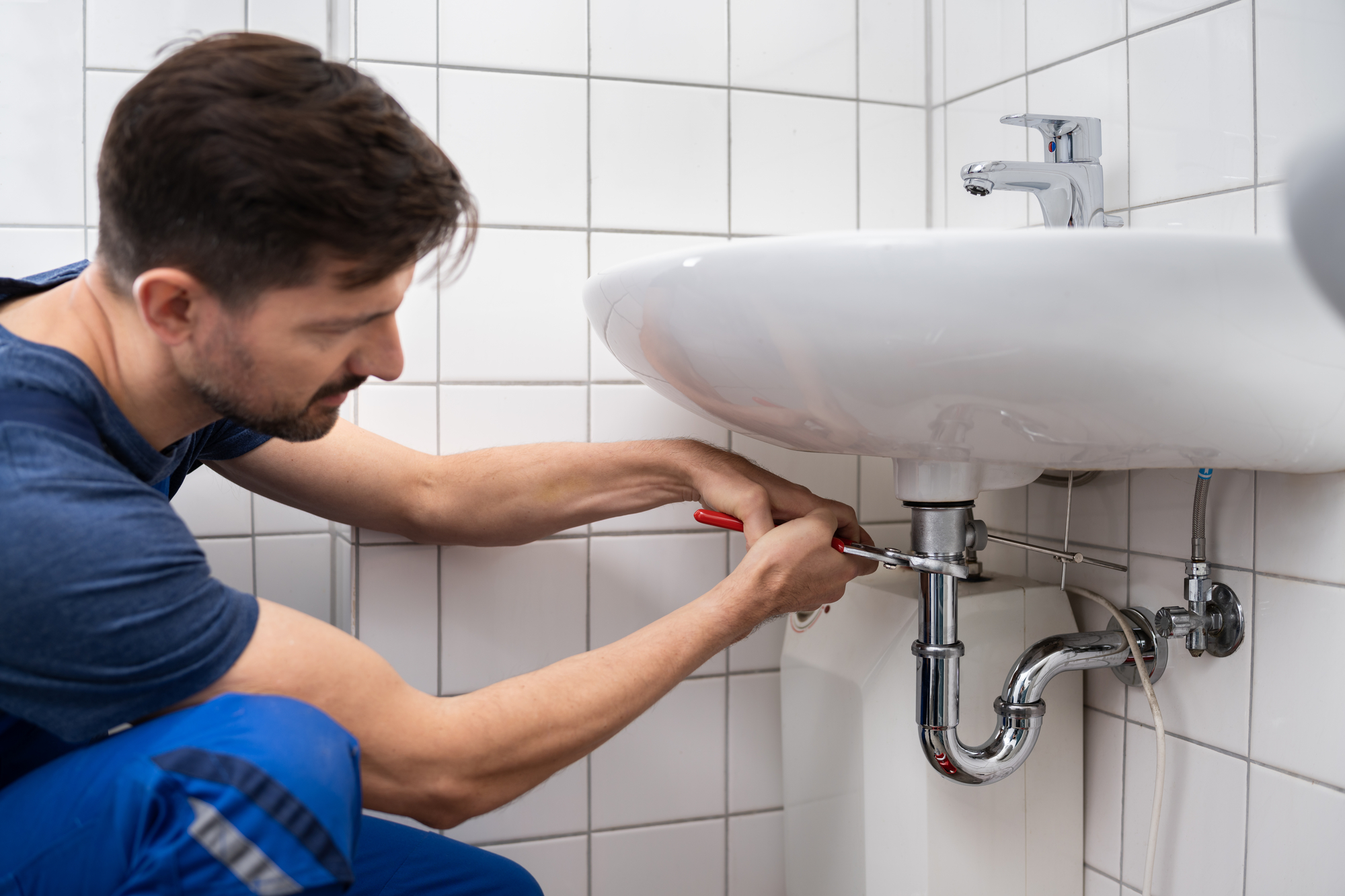
What is a Plunger?
A plunger is a simple yet effective tool used for clearing clogs in drains and pipes. It consists of a handle and a rubber cup-shaped head. When the cup is pressed against the drain opening and then forcefully pulled back, it creates suction that can dislodge obstructions within the pipe. Plungers come in various designs, with flat-bottomed plungers being more suitable for flat surfaces like shower drains.
What Causes Drains to Clog?
Drain clogs are a common household nuisance that can disrupt daily routines and cause frustration. Various factors contribute to drain blockages, leading to slow drainage or complete backups. Let’s explore some common causes of drain clogs and how they affect your plumbing system:
Hair
Hair is one of the primary causes of drain clogs, especially in shower drains. As people bathe, hair naturally falls out and can easily accumulate in the drain. Once inside the drain, hair strands entangle with each other. Along with other debris, creates a barrier that restricts water flow. Over time, this accumulation can worsen, leading up to a complete blockage.
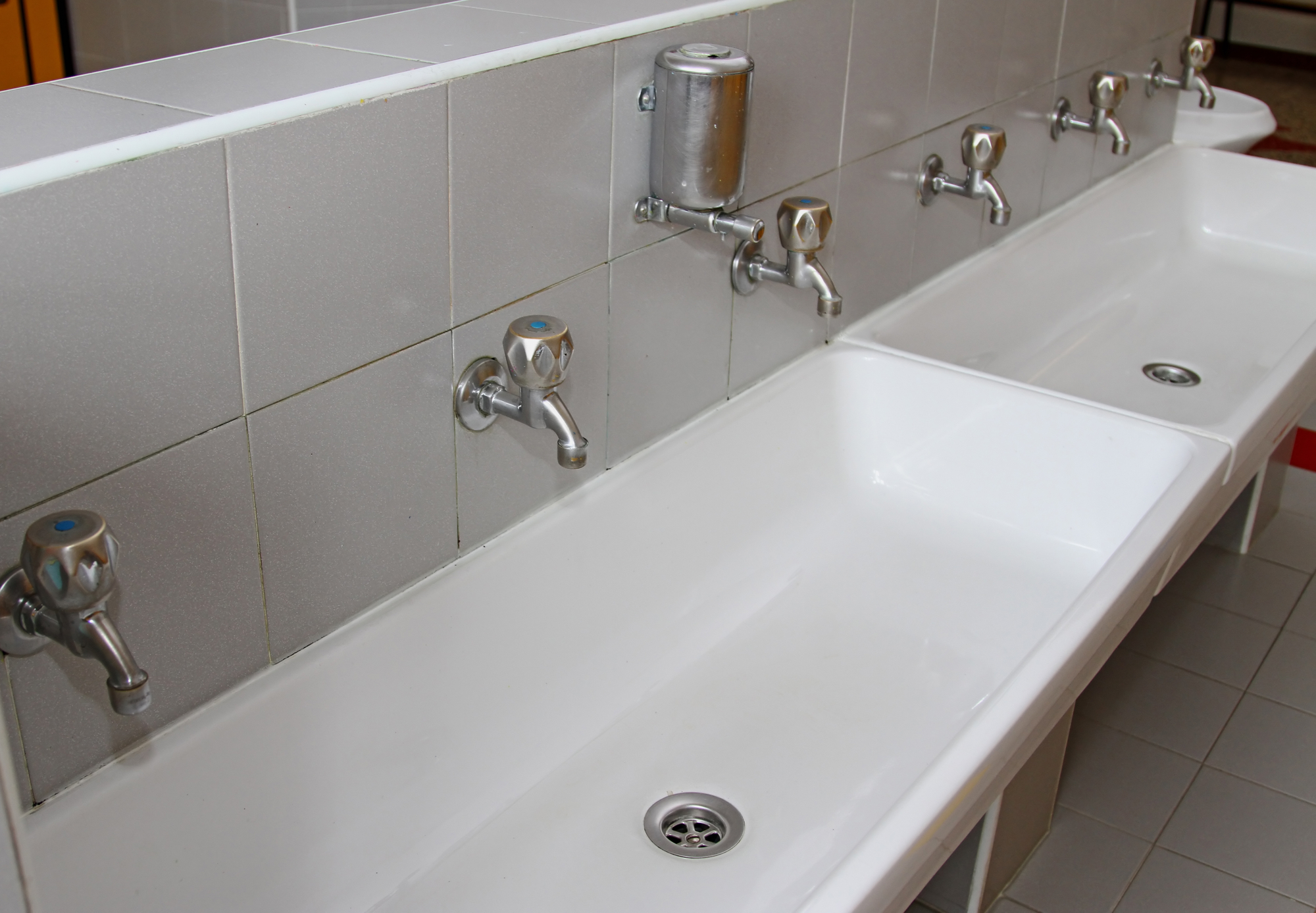
Sediment Buildup
Another common cause of drain clogs is the accumulation of sediment and minerals from hard water. Hard water contains high concentrations of minerals such as calcium and magnesium. As water flows through the pipes, these minerals can deposit onto the inner walls of the pipes, gradually building up over time. This buildup narrows the passage through which water can flow, eventually leading to reduced drainage capacity and clogs.
Soap
Soap, particularly in the form of soap scum, can contribute to drain clogs. When soap mixes with water, it forms a sticky residue known as soap scum. Over time, this scum can adhere to the walls of pipes. Creating a rough surface that attracts other debris, including hair and sediment. As the buildup of soap scum and debris accumulates, it can impede water flow and contribute to clogs.
Can You Plunge a Shower Drain Yourself?
Yes, most shower drain clogs can be resolved with a plunger and some elbow grease. However, if plunging doesn’t work, you might need to explore other methods.
How to Prevent Shower Drain Clogs
Preventing shower drain clogs involves implementing regular maintenance practices and being mindful of what goes down the drain. Some preventative measures include:
- Installing a drain cover with a fine mesh to catch hair and debris.
- Use a hair trap or catcher inside the drain to prevent hair from entering the pipe.
- Flushing the drain with hot water periodically to help dissolve soap scum and prevent buildup.
- Installing a water softener if you have hard water to reduce mineral deposits in your pipes.
What is the Proper Plunging Technique?
Proper plunging technique is crucial for effectively clearing a shower drain clog. Follow these steps for the best results:
- Create a Good Seal: Ensure the plunger cup completely covers the drain opening and forms a tight seal.
- Add Water if Necessary: If there isn’t enough water in the shower to cover the plunger cup. Add some to help create a better seal and improve suction.
- Plunge Vigorously: Using both hands, apply downward pressure on the plunger handle and quickly pull up to create suction. Repeat this motion several times, maintaining a strong seal throughout.
- Repeat as Needed: If the clog doesn’t clear after several attempts, try plunging again or consider alternative methods.
Other Methods to Fix a Clog
Encountering a clogged drain can disrupt daily routines and create frustration in any household. While plunging is a common and effective method for clearing minor blockages, there are situations where alternative approaches might be necessary or preferred. By exploring different methods, including whether can you plunge a shower drain? You can equip yourself with a range of techniques to tackle stubborn clogs and restore proper drainage. Let’s delve into these alternative approaches to addressing clogs and learn how they can offer solutions beyond traditional plunging.
Boiling Water
Pouring boiling water down the drain can often dissolve minor clogs, particularly those caused by grease or soap scum buildup. Be cautious with this method if you have PVC pipes, as boiling water could damage them.
Baking Soda and Vinegar
This natural solution can help break down clogs. Start by pouring about 1/2 cup of baking soda down the drain, followed by 1/2 cup of vinegar. Cover the drain with a plug or cloth for about 15-30 minutes, then flush with hot water.
Plunger
A plunger can be effective for dislodging clogs, especially in toilets and sinks. Make sure there is enough water in the fixture to cover the bottom of the plunger. Then use a vigorous up-and-down motion to create suction and dislodge the clog.
Plumbing Snake
Also known as a drain auger, a plumbing snake can reach deeper clogs that are beyond the reach of a plunger. Insert the snake into the drain and rotate it until you feel resistance. Then continue to push and twist to break up the clog.
Chemical Drain Cleaners
There are various chemical drain cleaners available on the market, which use powerful ingredients to dissolve clogs. Follow the instructions carefully and use these products with caution. Because they can be harmful to both the environment and your plumbing if you use them incorrectly.
Enzyme Cleaners
Enzyme-based drain cleaners are a more natural alternative to chemical cleaners. These cleaners use enzymes to break down organic matter. Things such as hair and food particles. By breaking the organic matter it can help clear clogs without damaging your pipes.
Hydro Jetting
This is a more aggressive method typically used by professionals. It involves using high-pressure water to blast away clogs and buildup from the inside of pipes.
Call a Professional
If you’re unable to clear the clog yourself or if you’re dealing with a severe blockage, it may be best to call a professional plumber. They have the expertise and specialized equipment to diagnose and fix the problem safely and effectively.
Before attempting any method, it’s essential to assess the severity of the clog and choose the most appropriate solution. Additionally, always prioritize safety and follow proper disposal procedures for any chemicals or waste generated during the unclogging process.
When is the Time to Call for a Plumber?
If you’ve tried multiple methods without success. Otherwise, if you suspect a more serious issue with your plumbing system, it’s time to call a professional plumber.
Signs that you may need professional help include:
Persistent Clogs
If you’ve tried DIY methods multiple times and the clog persists, it could indicate a more significant issue. A professional plumber can identify and address the root cause of the problem.
Multiple Fixture Issues
If you’re experiencing slow drainage or backups in several fixtures throughout your home. It suggests a potential problem with the main sewer line. This requires professional expertise to diagnose and repair.
Unusual Odors
Foul odors emanating from drains can be a sign of organic matter buildup or sewer line issues. These issues are best addressed by a plumber who can assess the situation and provide appropriate solutions.
Gurgling or Bubbling
Gurgling sounds or water bubbling up in one fixture when another is in use may indicate a ventilation problem or blockage in the plumbing system. A plumber can conduct a thorough inspection to identify and resolve the issue.
Visible Damage
Visible signs such as water stains, warped flooring, or corrosion on pipes indicate potential plumbing problems. Ignoring these signs could lead to more significant issues, so it’s essential to call a plumber promptly.
DIY Attempts Failed
If your attempts to fix the problem using DIY methods have failed or made the situation worse, it’s time to seek professional assistance. Plumbers have the expertise and tools to handle complex plumbing issues safely and effectively.
Is Drain Cleaner Safe or Bad for Shower Drains?
Corrosive Effects
Chemical drain cleaners contain harsh ingredients like sodium hydroxide or sulfuric acid, which can corrode pipes over time. This can lead to leaks, pipe damage, and costly repairs.
Environmental Impact
Chemical drain cleaners pose environmental hazards when washed down drains. The chemicals can contaminate water sources and harm aquatic ecosystems, making them an unsustainable choice for drain maintenance.
Health Risks
Exposure to the chemicals in drain cleaners can cause skin irritation, respiratory issues, and even poisoning if ingested. These risks make chemical drain cleaners hazardous to handle and store in households.
Limited Effectiveness
Chemical drain cleaners are designed to dissolve organic matter like hair and soap scum. However, they may not effectively clear other types of clogs, such as mineral deposits or solid objects.
Safer Alternatives
Natural Remedies
Baking soda and vinegar, as well as hot water, offer safer alternatives to chemical drain cleaners. These natural remedies can effectively dissolve minor clogs without posing risks to pipes or the environment.
Enzyme-Based Cleaners
Enzyme-based drain cleaners use natural enzymes to break down organic matter, offering a safer and more eco-friendly option for clearing clogs.
FAQ
- What type of plunger is best for a shower drain?
- A cup or flange plunger is recommended for shower drains. These plungers have a soft rubber cup that creates a better seal around flat surfaces, such as shower drains, facilitating effective plunging.
- How do I use a plunger on a shower drain?
- Place the plunger over the drain, ensuring it covers the entire opening. Press down gently to expel any air, then plunge vigorously up and down for about 20-30 seconds. Repeat if necessary, and check if the water is draining freely.
- What if plunging doesn’t unclog the shower drain?
- If plunging doesn’t work, there may be a more stubborn blockage. Consider using a drain snake or auger to reach deeper into the drain and break up the clog. Alternatively, chemical drain cleaners can be used cautiously, following the product instructions.
- Are there any precautions to take when plunging a shower drain?
- Ensure there is enough water in the shower to cover the plunger’s cup. Additionally, remove any drain covers or stoppers before plunging. If you’ve recently used chemical drain cleaners, wear protective gloves and goggles, and avoid splashing.
Conclusion,
In conclusion, can you plunge a shower drain is a usual question most ask about? Plunging indeed serves as a viable first step in tackling such issues. With the right technique and some preventative measures, you can keep your shower drain flowing smoothly. However, don’t hesitate to seek professional help for persistent or severe clogs. By combining DIY efforts with professional assistance when needed, you can maintain a functional and efficient plumbing system in your home.

